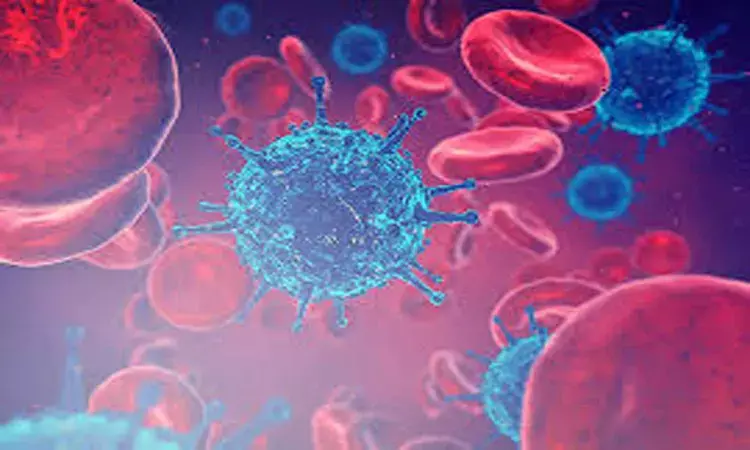- Home
- Medical news & Guidelines
- Anesthesiology
- Cardiology and CTVS
- Critical Care
- Dentistry
- Dermatology
- Diabetes and Endocrinology
- ENT
- Gastroenterology
- Medicine
- Nephrology
- Neurology
- Obstretics-Gynaecology
- Oncology
- Ophthalmology
- Orthopaedics
- Pediatrics-Neonatology
- Psychiatry
- Pulmonology
- Radiology
- Surgery
- Urology
- Laboratory Medicine
- Diet
- Nursing
- Paramedical
- Physiotherapy
- Health news
- Fact Check
- Bone Health Fact Check
- Brain Health Fact Check
- Cancer Related Fact Check
- Child Care Fact Check
- Dental and oral health fact check
- Diabetes and metabolic health fact check
- Diet and Nutrition Fact Check
- Eye and ENT Care Fact Check
- Fitness fact check
- Gut health fact check
- Heart health fact check
- Kidney health fact check
- Medical education fact check
- Men's health fact check
- Respiratory fact check
- Skin and hair care fact check
- Vaccine and Immunization fact check
- Women's health fact check
- AYUSH
- State News
- Andaman and Nicobar Islands
- Andhra Pradesh
- Arunachal Pradesh
- Assam
- Bihar
- Chandigarh
- Chattisgarh
- Dadra and Nagar Haveli
- Daman and Diu
- Delhi
- Goa
- Gujarat
- Haryana
- Himachal Pradesh
- Jammu & Kashmir
- Jharkhand
- Karnataka
- Kerala
- Ladakh
- Lakshadweep
- Madhya Pradesh
- Maharashtra
- Manipur
- Meghalaya
- Mizoram
- Nagaland
- Odisha
- Puducherry
- Punjab
- Rajasthan
- Sikkim
- Tamil Nadu
- Telangana
- Tripura
- Uttar Pradesh
- Uttrakhand
- West Bengal
- Medical Education
- Industry
First case of vaccine-induced blood clot treated with heparin alternatives: Report

USA: A recent case report published in the Annals of Emergency Medicine, describes the first case of a patient with vaccine-induced blood clot who was safely treated with a heparin alternative following the Centers for Disease Control and Prevention (CDC) guidance.
CDC guidance recommended treatment with heparin alternatives but did not recommended any specific alternative in that announcement.
Bivalirudin was given to the patient and the authors write that, "this patient's early outcomes suggest that bivalirudin may be a safe alternative to heparin in patients demonstrating a presentation consistent with vaccine-induced thrombotic thrombocytopenia (VITT)"
The case in question is of an otherwise healthy female patient in her 40s came to the emergency department at UCHealth University of Colorado Hospital twelve days after receiving the Johnson & Johnson vaccine with a headache, dizziness, and vision changes. The treatment was given on April 13, 2021, the same day that the Centers for Disease Control and Prevention (CDC) announced a pause in the administration of the Johnson & Johnson vaccine.
"Our experience shows us that these clot reactions are very rare, but they can be treated," said R. Todd Clark, lead co-author and assistant professor of emergency medicine at the University of Colorado School of Medicine. "Americans can feel comfortable getting vaccinated and should discuss any vaccination concerns with their doctor. Getting vaccinated is a critical step in combatting this pandemic so we can return to our normal lives."
While more research is needed on the efficacy of this medicine, the early outcomes of this case may inform the decision making of other health professionals who may be selecting heparin alternatives for patients with VITT, the authors said.
"While pursuing further investigation of the best treatment for these rare vaccination side-effects, it is important that the medical community and public health officials continue to support ongoing vaccination strategies to control the COVID-19 pandemic," they wrote.
Reference:
"Early Outcomes of Bivalirudin Therapy for Thrombotic Thrombocytopenia and Cerebral Venous Sinus Thrombosis after Ad26.COV2.S Vaccination: A Case Report," is published in Annals of Emergency Medicine.
DOI: https://www.annemergmed.com/pb/assets/raw/Health Advance/journals/ymem/YMEM_2021-969.pdf
Dr Kamal Kant Kohli-MBBS, DTCD- a chest specialist with more than 30 years of practice and a flair for writing clinical articles, Dr Kamal Kant Kohli joined Medical Dialogues as a Chief Editor of Medical News. Besides writing articles, as an editor, he proofreads and verifies all the medical content published on Medical Dialogues including those coming from journals, studies,medical conferences,guidelines etc. Email: drkohli@medicaldialogues.in. Contact no. 011-43720751


